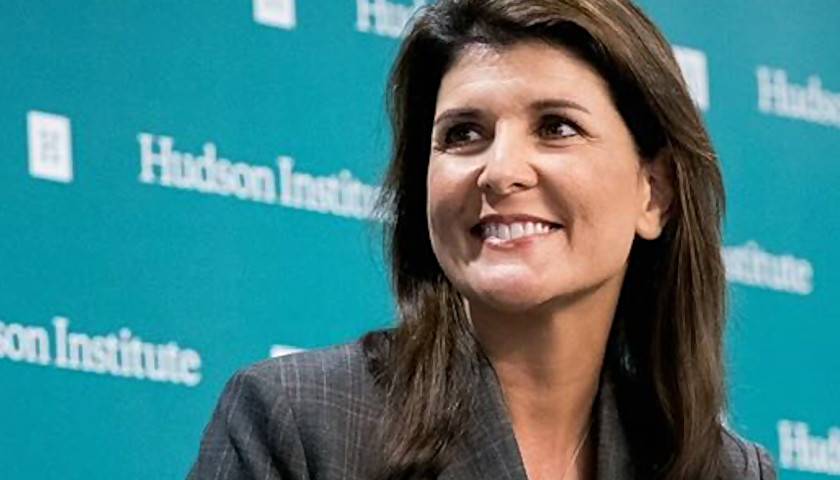by Daniel J. Flynn
TWIL: What everybody thought constituted a recession no longer does.
The Bureau of Economic Analysis announced that gross domestic product (GDP) fell by 0.9 percent in the second quarter. This follows a 1.6 percent contraction in the first quarter.
Recession, right?
Since the Biden administration could teach a masterclass in spin but would fail Economics 101, the White House expends considerable energy on solving this terrible problem, this terrible problem of recalcitrants stuck on the idea that an economy in recession, well, recedes.
Whoever imagined that recession meant receding GDP never talked to National Economic Council Director Brian Deese. The Chip Diller of the Biden administration told CNN on Sunday that “in terms of the technical definition” two straight quarters of a contracting GDP actually is “not a recession.” He informed, “[The] technical definition considers a much broader spectrum of data points.”
Phew. For a minute it looked as though the twin terrors of Stagflation that plagued the Carter years now also would bedevil the Biden presidency. Good to know the real issue involves merely educating Americans that they do not know what they know and do not experience what they experience. Why did not Jimmy Carter think of this first?
President Biden doubled down on promoting public relations over sound economics on Thursday by claiming that “we’re not in a recession” according to the economists he respects and by boasting of a deal struck in the Senate that raises taxes, or, as the president put it, forces the wealthy and “the largest corporations in America to pay their fair share.” While common sense suggests to not raise taxes during a recession, Biden insists he does not do this because no recession exists.
Paul Krugman warned in the Times that “it would be foolish to declare that we’re in a recession even if Thursday’s number is negative and the first-quarter number isn’t revised upward.” Best, he explained, to wait for the word from “the people who actually decide whether we’re in a recession.”
What people? The American people who make up the market? Well, no. It turns out just eight professors.
Writes Krugman of the National Bureau of Economic Research:
Since 1978 the N.B.E.R. has had a standing group of experts called the Business Cycle Dating Committee, which decides — with a lag — when a recession began and ended based on multiple criteria, including employment, industrial production and so on. And the US government accepts those rulings. So the official definition of a recession is that it is a period that the committee has declared a recession; it’s an expert judgment call, not a formula.
Will this “lag” last beyond November, and did these experts vote for Joe Biden?
“The eight economists on the committee are among the most respected in their field,” the Washington Post maintains. “Some have served in Democratic administrations, but past members have also included GOP appointees.”
Past members, huh?
Current members include James Stock, who gave at least $1,000 each to Barack Obama, Hillary Clinton, and Pete Buttigieg. He sent $2,800 to Biden’s 2020 campaign. David Romer, who also sits on this council of elders, donated $5,600 to Joe Biden in the last presidential cycle. His wife, Christina Romer, chaired the council of economic advisors during the Obama administration before becoming part of this elite eight.
What the committee lacks in balance it makes up for in transparency, right?
Reports the Washington Post:
The committee’s meetings are not publicized. They’re held in a closed-door conference room on the third floor of the Cambridge, Mass., office building where NBER is headquartered. They don’t meet on a fixed schedule: Board Chairman and Stanford economist Bob Hall is responsible for calling the meetings. During long periods of consistent economic growth, the board can go years without having anything to discuss, and therefore, it might hold no meetings. It wouldn’t even confirm when past meetings have happened.
Who knows? Maybe the NBER board will vote that America really is experiencing prosperity unmatched by the 1920s, 1960s, and 1980s combined. Such a proclamation by eight professors would really show the shrinking stock market, rising consumer prices, and declining productivity that happy days are here again.
Americans find their country in a recession. Americans find those who do not find their country in a recession in the Twilight Zone.
Economists do not decide on a recession. The economy does.
The democracy of the market, where 333 million buyers and sellers determine whether the economy grows or shrinks, will mark “boom” or “bust” on ballots. Eight economists meeting in secret between the Harvard and Central Squares will not dictate the answer.
– – –
Daniel J. Flynn, a senior editor of The American Spectator, is the author of Cult City: Harvey Milk, Jim Jones, and 10 Days That Shook San Francisco (ISI Books, 2018), The War on Football (Regnery, 2013), Blue Collar Intellectuals (ISI Books, 2011), A Conservative History of the American Left (Crown Forum, 2008), Intellectual Morons (Crown Forum, 2004), and Why the Left Hates America (Prima Forum, 2002). His articles have appeared in the Los Angeles Times, Chicago Tribune, Boston Globe, New York Post, City Journal, National Review, and his own website, www.flynnfiles.com.
Photo “Joe Biden” by The White House.





